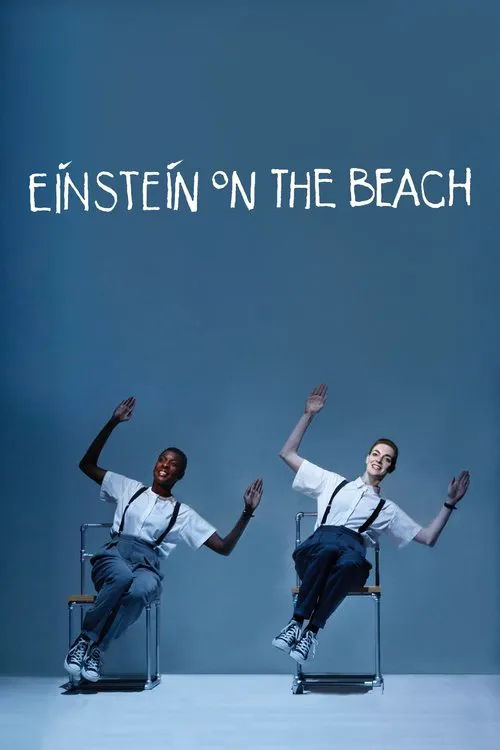Einstein on the Beach

あらすじ
Einstein on the Beach, the groundbreaking work of avant-garde opera, has become an iconic fixture of the art world since its world premiere at the Avignon Festival in 1976. Conceived by composer Philip Glass and director Robert Wilson, this extraordinary production has stood the test of time, defying conventional narrative structures and pushing the boundaries of theatrical storytelling. The 2014 revival tour's final stop in France at the esteemed Thêâtre du Châtelet marked a poignant return to the site where this masterpiece first debuted nearly four decades ago. The opera is loosely centered around the figure of Albert Einstein, the renowned pacifist physicist. However, the production does not follow a traditional biographical trajectory. Instead, Wilson and Glass opted for a more abstract approach, allowing the audience to navigate a world that is both intensely personal and universally relevant. The narrative, if it can be termed that, revolves around Einstein's complex relationship with the creation of the atomic bomb. The opera is not a straightforward commentary on the scientist's involvement in the Manhattan Project or his famous equation E=mc². Rather, it delves deeper, exploring the interconnectedness of art, politics, and the human condition. As the opera unwinds, Einstein's presence is felt throughout, a constant yet elusive figure, whose ideas and actions have far-reaching consequences. Through a unique blend of music, dance, and visual imagery, Wilson and Glass create a sense of fluidity, as if the audience is drifting effortlessly through a dreamworld. The set design, courtesy of Wilson's minimalist yet striking aesthetic, features an iconic black and white landscape that serves as a constant backdrop for the opera's unfolding drama. The 2014 revival, filmed by the award-winning arts filmmaker Don Kent, provides a unique opportunity to experience this masterpiece on the big screen. The film captures the Thêâtre du Châtelet performance with precision and intimacy, drawing the viewer into the heart of the drama. The score, composed by Philip Glass, is an integral part of the opera's fabric, pulsating with energy and a hypnotic sense of rhythm. The music ebbs and flows like a river, carrying the audience through a labyrinth of emotions and ideas. Glass's innovative use of repetition and variation creates a sense of dynamic tension, underscoring the opera's themes of transformation and disquiet. As the opera hurtles towards its climax, the audience is confronted with a series of abstract tableaux, each one evoking a different aspect of Einstein's persona. These tableaux, crafted by Wilson's meticulous eye, are imbued with a sense of timelessness, as if the moment of creation is frozen in perpetuity. Through these fleeting images, we glimpse the many facets of Einstein's character – the absent-minded professor, the tortured genius, the pacifist warrior. Each tableau is a masterclass in subtlety, requiring the audience to fill in the gaps, to make connections between the disparate elements. The finale, like the opera as a whole, is a tour-de-force of creativity and imagination. As the curtain rises, the audience is presented with a tableau of staggering beauty, a symphony of movement and sound that dissolves the boundaries between reality and fantasy. In this moment, the boundaries between art and life, creator and observer, are erased, leaving the viewer with a sense of awe and disorientation. In the end, Einstein on the Beach is not just an opera, but an experience, a happening that changes the viewer forever. It defies categorization, resisting easy interpretation or reduction to a single narrative thread. Instead, it invites the audience to participate, to immerse themselves in the world of Wilson and Glass, and to emerge transformed, with a new understanding of the human experience. As the credits roll, the viewer is left with a sense of wonder, the haunting memory of an event that has left its mark on the soul. Einstein on the Beach is a work of genius, a testament to the power of art to shape our thinking, to disrupt our complacency, and to create a new language of the human condition. In the words of Einstein himself, "Imagination is more important than knowledge. Knowledge is limited. Imagination encircles the world."
レビュー
おすすめ




